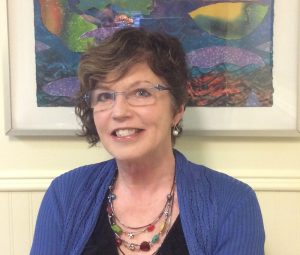
Barb Kiely, NP, Primary Care Lead for Diabetes/Chronic Disease Management with the North East Local Health Integration Network (NE LHIN)
Many patients aren’t sure if a Diabetes Education Program (DEP) is meant for them. Surely it’s only for the really sick people.
“I thought my diabetes was only mild and that it was well controlled so why should I go to the Diabetes Education Program? I see my Doctor/ Nurse Practitioner several times a year – isn’t that enough?”
I’ve heard this many times as a Nurse Practitioner and Certified Diabetes Educator in Kirkland Lake. There’s a good reason why diabetes is known as the “silent killer”. People who have it might not “feel sick” as the disease progresses – and may consider their diabetes to be mild. But its complications can be serious. Uncontrolled diabetes leads to heart disease, kidney, eye and feet problems, including amputations.
Did you know that by 2020 more than one in four Canadians will be living with diabetes or pre-diabetes? Here in the North East, this rate is even higher, especially among Indigenous people. Pre-diabetes is also serious but people can take steps to prevent or delay the onset diabetes.
There are many benefits to gain from visiting one of the North East LHIN’s 23 DEPs. First off, Northerners can access all the resources of an entire team who specialize in this disease and whose sole job it is to keep up on the latest findings and best practices.
The DEP team is made up of a registered dietitian and a registered nurse who have met national certification standards of skills and knowledge for helping people with diabetes to control it before it controls them!
This team deals with thousands of people living with diabetes and are seen as experts in their field. They complement the care you receive from your primary care provider (doctor of nurse practitioner) so that they can focus on the rest of your health. They’ll also stay in touch with your primary care provider so they know how you’re doing.
The team is interested in you as a person, living with diabetes, rather than just your disease. They are there to help you understand your diabetes experience and problem solve so that you gain confidence to better manage your disease.
You’ll learn about possible complications, what your blood sugar readings mean, how to monitor them, medicines, how food choices can make a huge impact in your life, foot-care, and also support you from feeling down and alone dealing with this serious disease. A DEP will also ensure that you have all the tests needed on a regular basis to monitor the disease.
People can take classes by themselves or with their family members at a DEP. Don’t have a family doctor or nurse practitioner? No worries. You don’t need a referral. Even if you have not received a diagnosis but wonder whether you might have the disease, you can call a DEP to find out more.
It’s recommended that everyone with diabetes should be seen at least yearly by their DEP because things change with diabetes. Many of the DEPs have flexible hours so you can fit it around work and may have travelling clinics that will visit your area – if you live in a rural community.
Call your local DEP today… Remember, no referral needed! To find a list of all DEPs in the North East go to www.nelhin.on.ca/diabetes/patients
Prevent or at least delay the complications of diabetes! Knowledge is power!
About The North East Local Health Integration Network (North East LHIN) - The North East LHIN is one of the largest of 14 LHINs in Ontario, responsible for planning, integrating and funding health care services for more than 565,000 people across an estimated 400,000 square kilometers. From offices in North Bay, Sault Ste. Marie, Sudbury and Timmins, this are a provincial crown corporation that ensures the local health care system works when people need it. The North East LHIN brings close to 150 of our region’s health care partners together – hospitals, community support services, mental health and addictions, community health centres, long-term care homes, and the Community Care Access Centre.
- Monday Morning News – June 30 - June 30, 2025
- Saturday Morning News – June 28th - June 28, 2025
- Rock Island Presents – Michel Neray House Concert Tonight - June 27, 2025
 Wawa-news.com You can't hear the 'big picture'!
Wawa-news.com You can't hear the 'big picture'!
